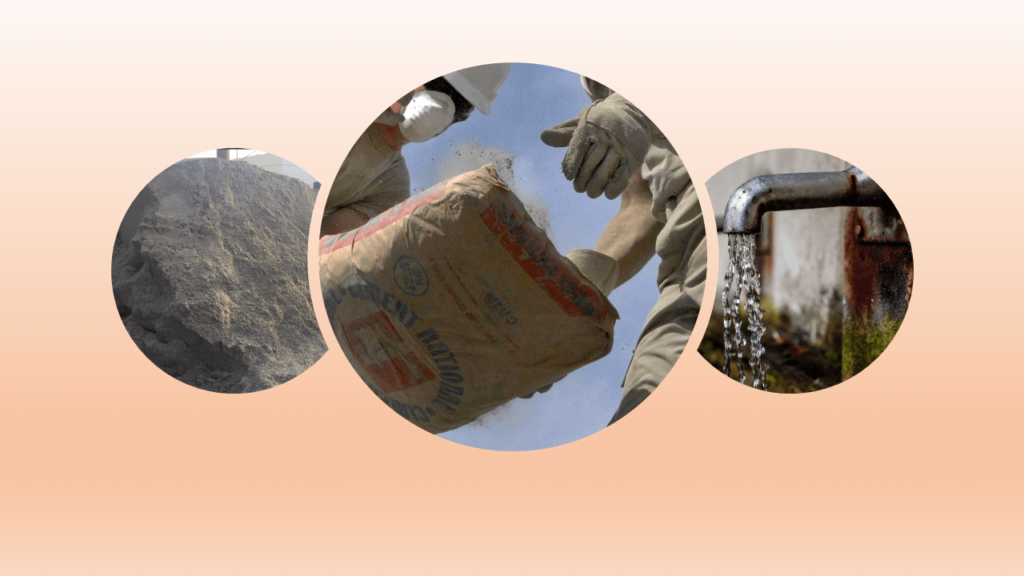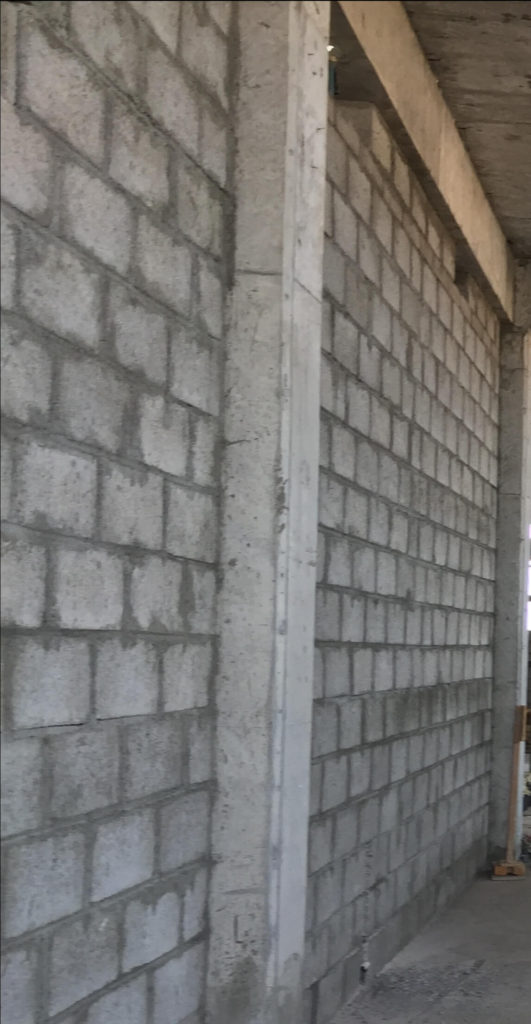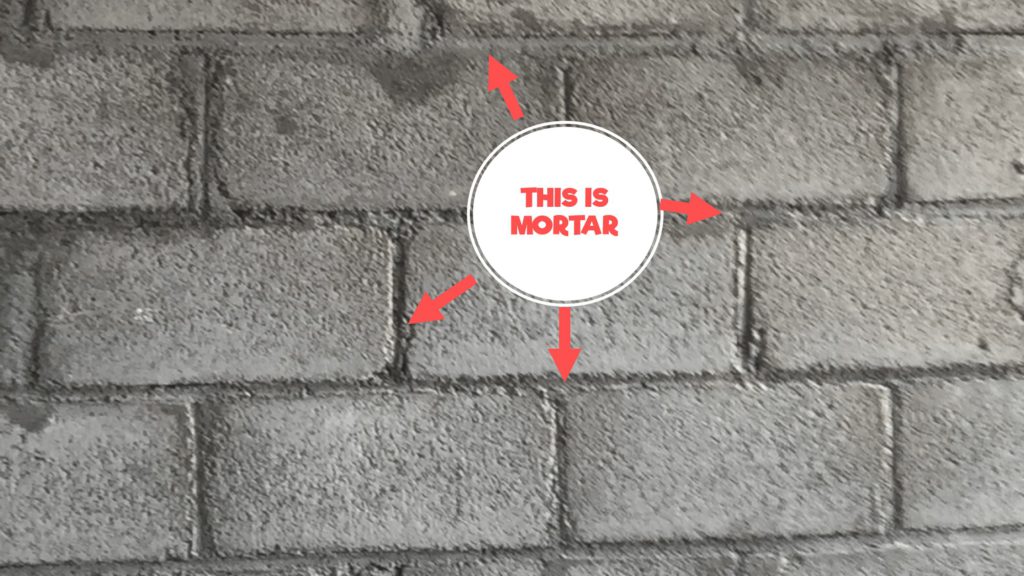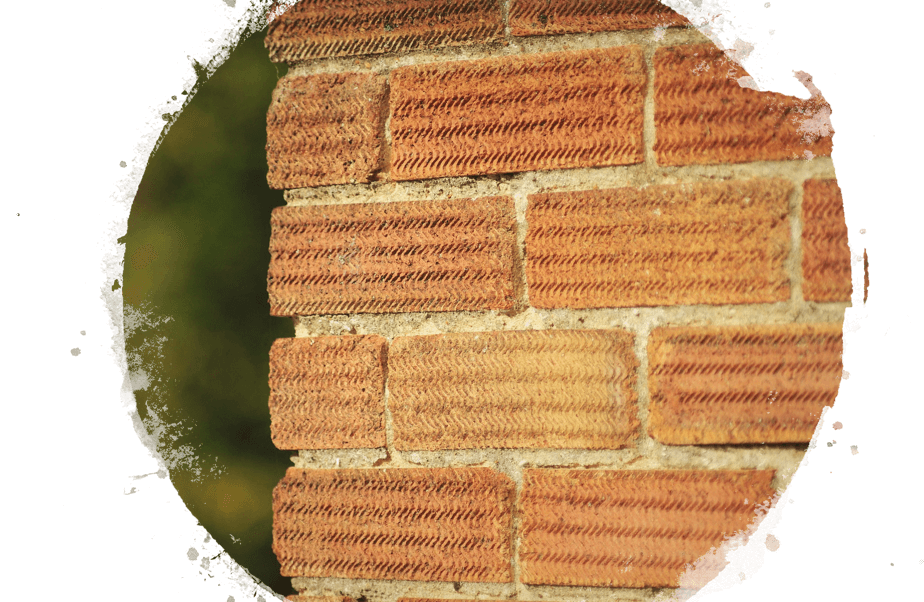Mortar for masonry is a mixture of cementitious materials, fine aggregates, water, and in some conditions with additives or admixtures. Cementitious materials are also called binder. Binders that can be used for masonry mortar could be Ordinary Portland Cement (OPC), Sulphate Resisting Cement (SRC), or lime. Fine aggregates could be either sand containing higher to a lower proportion of fines. For mortar additive, a plasticizer is an example.

Mortar for Masonry – What are the functions?
The functions of mortar for masonry are the following:
- Masonry mortar acts as a glue to bind masonry units together. It also binds masonry accessories such as mesh, reinforcement, and connectors to the masonry units.
- Masonry mortar is used to level and align masonry units properly. It corrects tiny irregularities between masonry units by adjusting masonry mortar thickness or spaces.
- Mortar for masonry functions as a sealant against water, wind, or dust penetration.
- Mortar for masonry functions to carry masonry units thus it must have enough strength.
To remember easily the functions of masonry mortar, a masonry mortar simply acts as a glue, spacers, sealant, and durable materials.

Masonry mortar – What to Know and How to Check?
I will be giving only some important points about masonry mortar. All the points that will be discussed here are based on the European standard only.
- BS EN 998-2 (Specification for Mortar for Masonry) is the European standard reference for masonry mortar. It gives the requirements, designation, marking, and conformity of the masonry mortar.
- Factory-made masonry mortar and site-made masonry mortar are the two popular types of masonry mortar based on the production location. Factory-made site mortar could be either wet ready-to-use mortar or dry ready-to-use mortar. Wet ready-to-use mortar is similar to ready-mix concrete which is being delivered to the site fresh. Wet ready-to-use mortar generally remains workable up to 48 hours. Meanwhile, site-made masonry mortar is being prepared at the site based on the prescribed proportion and methodology set by the engineer.
- Prescribed Proportion.

The proportion for masonry mortar could be either a cement-sand ratio or cement-lime-sand ratio. The part or ratio of sand by volume to one part of cement usually ranges from two to nine parts. Less amount of sand mostly corresponds to a higher value of compressive strength, but it is not always the case. Quality of fine aggregates, chemical content, or admixture added have some effects on the mortar. The important note in any specification is that the compressive strength of any prescribed proportion must be declared using a well-known public reference such as the BS EN 998-2.
Let’s have some look at one example. The prescribed proportion 1:3 and 1:4 corresponds to M6 or 6 MPA compressive strength at 28 days according to BS EN 998-2 (cement: sand with or without air-entrainment). Other examples of prescribed proportions can be found in the table of BS EN 998-2. - Designed Masonry Mortar
Masonry mortar whose composition and mixing method is designed by the engineer to attain required properties or special functions
- Properties of Mortar for Masonry
Fresh Masonry Mortar
A desirable fresh masonry mortar should be workable within the time of masonry unit laying. This will give workers enough time to lay masonry units properly and accurately. However, masonry mortar must set or harden in a reasonable time to avoid mortar deformation due to the cumulative masonry unit weight. Having this mortar behavior means that we have the right fresh masonry mortar.
If we will look at the standard, the tests for masonry mortar that will describe the above behavior are tests for workability, water retentivity, air content, stiffening and hardening, and bulk density.
Hardened masonry mortar
A well-hardened mortar must be ready to perform its intended functions which were mentioned earlier. It must have the required strength to handle various stresses and must remain durable under extreme environmental conditions.
Based on the standard, various tests can be done to determine the desirable properties of hardened mortar. Some tests that can be performed for hardened mortar are tests for compressive strength, bond, durability, thermal conductivity, and others as listed in your specification.

Quiz – What have you learned about masonry mortar?
If you’ve enjoyed reading this blog about masonry mortar, you must have the answer for the following questions.
- What are the ingredients of masonry mortar?
- Cite the functions of masonry mortar in a single statement.
- What is the European standard for the specification for masonry mortar?
- Give at least two types of masonry mortar according to the production location. There are five types. Other three types are not discussed in this blog.
- Give the nearest compressive strength value at 28 days for masonry mortar with one part cement and three parts sand (1:3). The prescribed proportion with corresponding compressive strength can be found using available public standard.
- How are the properties of fresh masonry mortar?
- What are the properties of hardened masonry mortar?
- Give at least an example of additive for masonry mortar.
- Give at least three tests that determine the properties of hardened masonry mortar.
- What does M6 for masonry mortar mean?
All the answers to the above questions can be found only in this article.
Some Reference about Masonry Mortars
1. BS EN 998-2 – Specification for Masonry Mortar.
2. “Mortar Industry Association Data Sheets”
3. BS EN 1015 – Methods of Test for Masonry Mortar.
BS EN 1015-1 Determination of particle size distribution.
BS EN 1015-2 Bulk sampling of mortars and preparation of test mortars.
BS EN 1015-3 Determination of consistence of fresh mortar (by flow table).
BS EN 1015-4 Determination of consistence of fresh mortar (by plunger penetration).
BS EN 1015-6 Determination of bulk density of a fresh mortar.
BS EN 1015-7 Determination of air content of fresh mortar.
BS EN 1015-9 Determination of workable life and correction time of fresh mortar.
BS EN 1015-10 Determination of dry bulk density of a hardened mortar.
BS EN 1015-11 Determination of strength (flexural and compressive) of hardened mortar.
BS EN 1015-17 Determination of water-soluble chloride content of fresh mortar.
Share your ideas
If you have something to share about masonry mortar, feel free to discuss it in the comment box section below.
This blog is for educational purposes only based on research and experience of the writer. Compliance with it cannot give protection from legal requirements. Visitors of this website are still responsible for its correct application.

Informative. Thanks for sharing your knowledge.